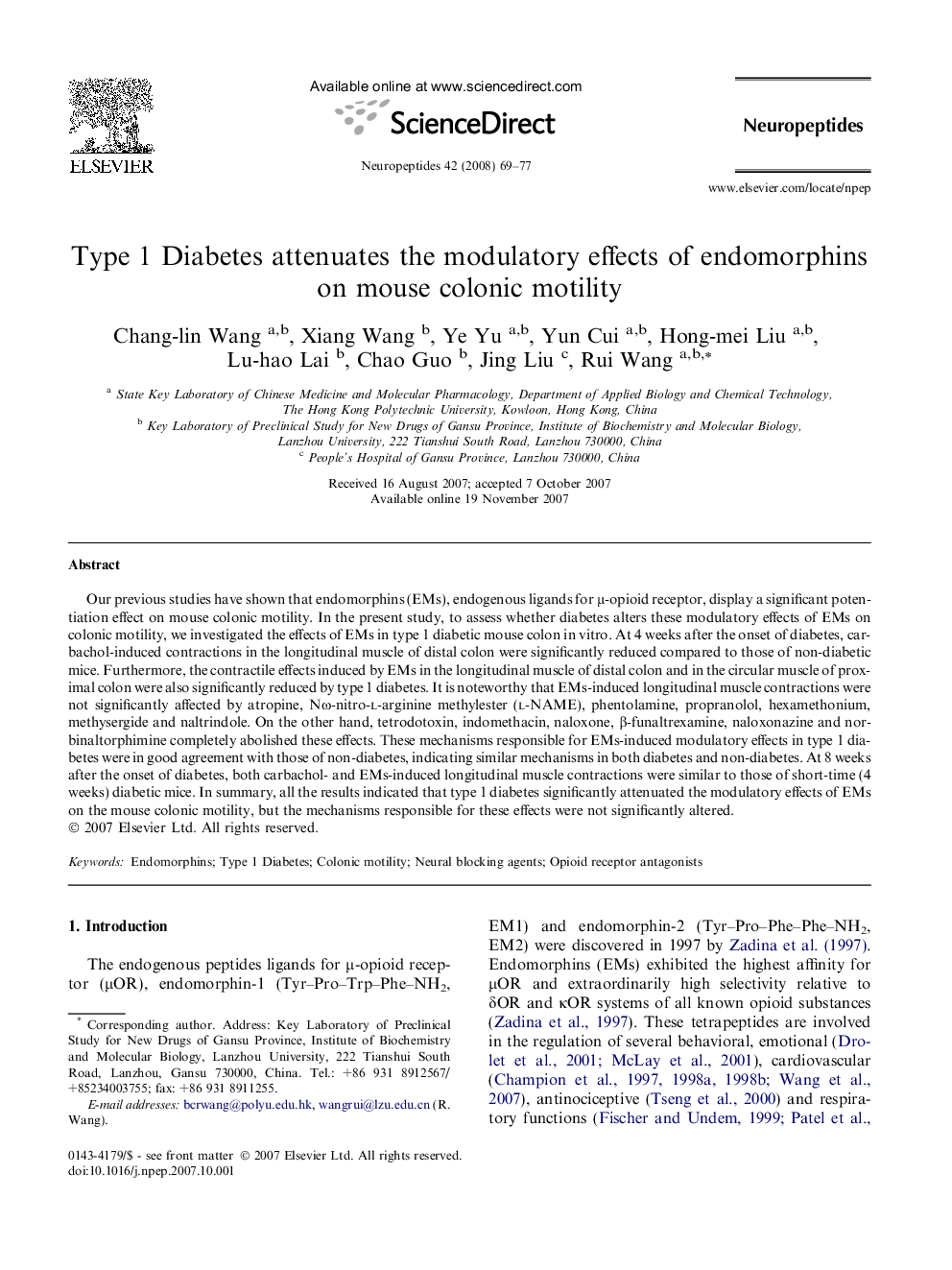| Article ID | Journal | Published Year | Pages | File Type |
|---|---|---|---|---|
| 2808322 | Neuropeptides | 2008 | 9 Pages |
Our previous studies have shown that endomorphins (EMs), endogenous ligands for μ-opioid receptor, display a significant potentiation effect on mouse colonic motility. In the present study, to assess whether diabetes alters these modulatory effects of EMs on colonic motility, we investigated the effects of EMs in type 1 diabetic mouse colon in vitro. At 4 weeks after the onset of diabetes, carbachol-induced contractions in the longitudinal muscle of distal colon were significantly reduced compared to those of non-diabetic mice. Furthermore, the contractile effects induced by EMs in the longitudinal muscle of distal colon and in the circular muscle of proximal colon were also significantly reduced by type 1 diabetes. It is noteworthy that EMs-induced longitudinal muscle contractions were not significantly affected by atropine, Nω-nitro-l-arginine methylester (l-NAME), phentolamine, propranolol, hexamethonium, methysergide and naltrindole. On the other hand, tetrodotoxin, indomethacin, naloxone, β-funaltrexamine, naloxonazine and nor-binaltorphimine completely abolished these effects. These mechanisms responsible for EMs-induced modulatory effects in type 1 diabetes were in good agreement with those of non-diabetes, indicating similar mechanisms in both diabetes and non-diabetes. At 8 weeks after the onset of diabetes, both carbachol- and EMs-induced longitudinal muscle contractions were similar to those of short-time (4 weeks) diabetic mice. In summary, all the results indicated that type 1 diabetes significantly attenuated the modulatory effects of EMs on the mouse colonic motility, but the mechanisms responsible for these effects were not significantly altered.
